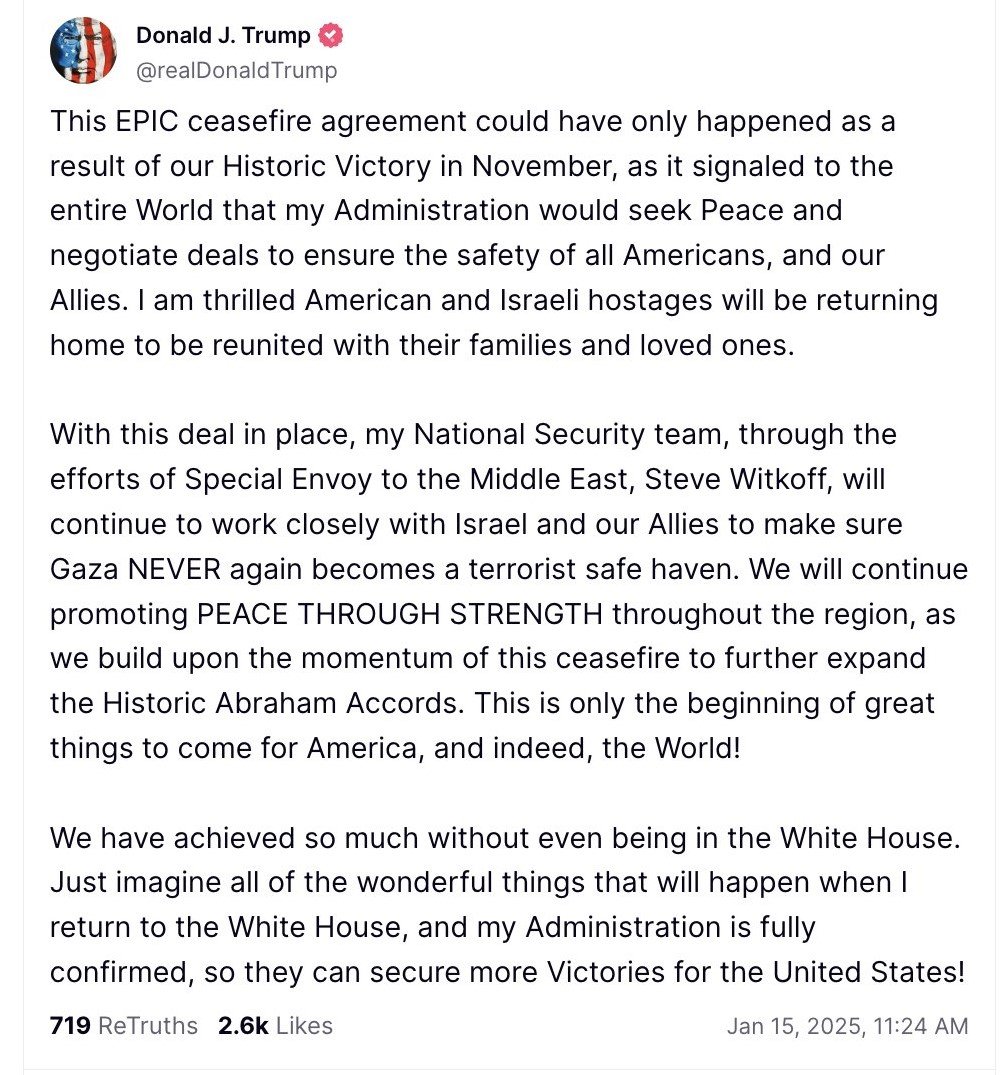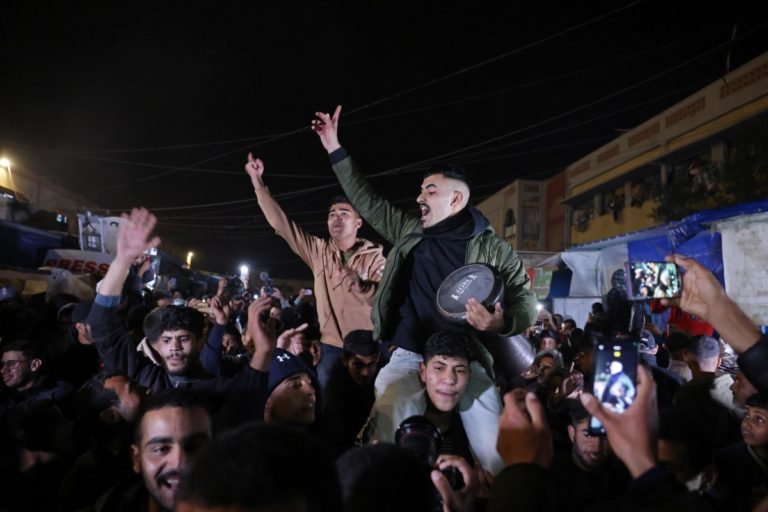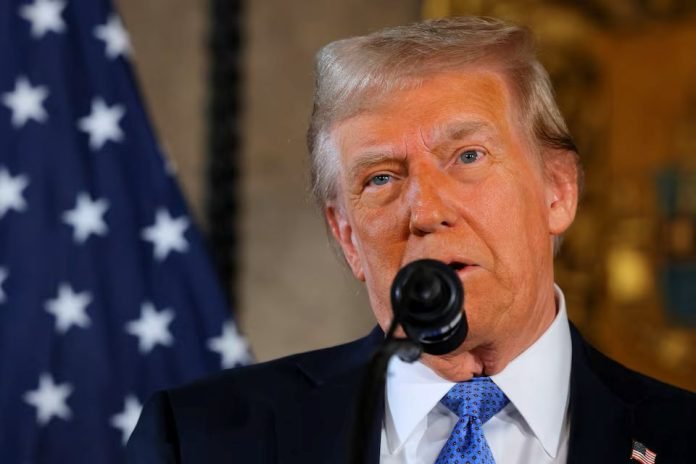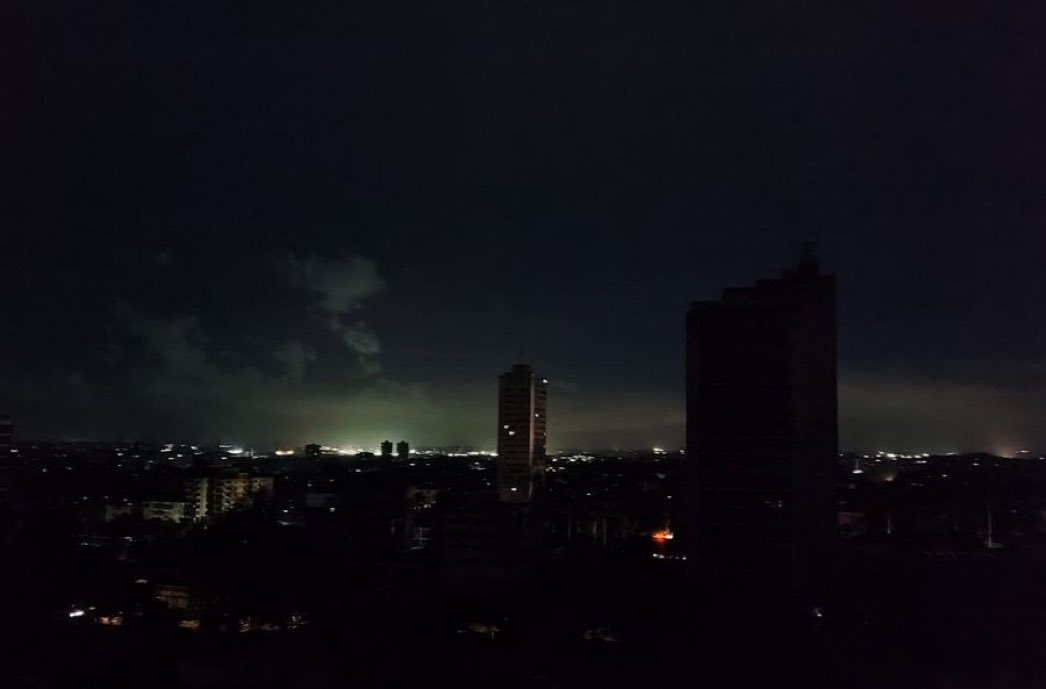Israel and Hamas have reportedly hammered out a deal on Wednesday, January 15, for a ceasefire and the release of hostages.
According to insider sources, Qatar’s prime minister seems to have succeeded in brokering the deal, which US officials have now confirmed.
Pressure to end the fighting has recently increased as mediators Qatar, Egypt, and the United States have intensified efforts to cement an agreement.
President-elect Donald Trump had warned, “All hell will break loose in the Middle East if the hostages are not released by the time I get into office.”
His threat may have added urgency on all sides. Trump warned, “Frankly, it will not be good for Hamas, it will not be good for anyone,” if the hostages deal was not consummated by January 20.
On Wednesday, a source close to the talks said Qatari Prime Minister Sheikh Mohammed bin Abdulrahman bin Jassim al-Thani was “meeting Hamas negotiators in his office for (a) final push” to seal the deal.
Trump himself, getting a whiff of the news, fired up a post from his Truth Social account, ant taking credit for the deal.

“I am thrilled American and Israeli hostages will be returning home,” Trump said on his Truth Social network.
He said he has “achieved so much without even being in the White House,” asking, “Just imagine all of the wonderful things that will happen when I return” to office.
Genesis of Conflict
Hamas sparked the war in Gaza by staging the deadliest-ever attack on Israel on October 7, 2023, resulting in the deaths of 1,210 people, mostly civilians.
Palestinian militants also took 251 people hostage during the attack, 94 of whom are still being held in Gaza, including 34 the Israeli military says are dead.
Israel’s retaliatory campaign in Gaza has killed 46,707 people, most of them civilians, according to figures from the Hamas-run territory’s health ministry that the UN considers reliable.
However, Hamas argues the war began long before October 7 with the occupation of Palestinian lands and dehumanization policies of the Israeli government.

Among the sticking points in successive rounds of talks had been disagreements over the permanence of any ceasefire, the withdrawal of Israeli troops, and the scale of humanitarian aid for the Palestinian territory.
The UN’s Palestinian refugee agency, UNRWA, facing an Israeli ban on its activities set to take effect later this month, said it will continue providing much-needed aid.
Israeli Prime Minister Benjamin Netanyahu, who vowed to crush Hamas in retaliation for the October 7 attack, has opposed any post-war role for the militant group in the territory.
US Secretary of State Antony Blinken said Tuesday Israel would ultimately “have to accept reuniting Gaza and the West Bank under the leadership of a reformed” Palestinian Authority and embrace a “path toward forming an independent Palestinian state.”
World powers and international organizations have pushed for a ceasefire for months, but it has remained elusive until Wednesday.
Comment, Like 👍, share this article, and Follow us on our social media handles.








